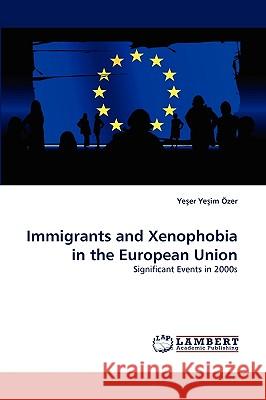Immigrants and Xenophobia in the European Union » książka
Immigrants and Xenophobia in the European Union
ISBN-13: 9783838343662 / Angielski / Miękka / 2010 / 252 str.
International migration challenges the organizational and conceptual boundaries constructed by states. Moreover, this phenomenon challenges popular notions of "us" and "them." In the 2000s, socioeconomic uncertainty has provided a new basis for exclusion and hostility amidst a rising tide of nationalism, racism and xenophobia. In today's Europe, changing boundaries between West and East, rising security concerns, economical problems, ambivalences in cultural and political spheres, all have affected how migrants are perceived by host societies. This work analyzed international migration and xenophobia within the European Union. Building upon the conceptual framework, in particular, consideration is given to the presence of migrants within the EU generates certain responses at the national and EU- wide levels. A recent trend termed "Islamophobia" is identified as a new issue deserving further analysis.
International migration challenges the organizational and conceptual boundaries constructed by states. Moreover, this phenomenon challenges popular notions of "us" and "them". In the 2000s, socioeconomic uncertainty has provided a new basis for exclusion and hostility amidst a rising tide of nationalism, racism and xenophobia. In todays Europe, changing boundaries between West and East, rising security concerns, economical problems, ambivalences in cultural and political spheres, all have affected how migrants are perceived by host societies. This work analyzed international migration and xenophobia within the European Union. Building upon the conceptual framework, in particular, consideration is given to the presence of migrants within the EU generates certain responses at the national and EU- wide levels. A recent trend termed "Islamophobia" is identified as a new issue deserving further analysis.











